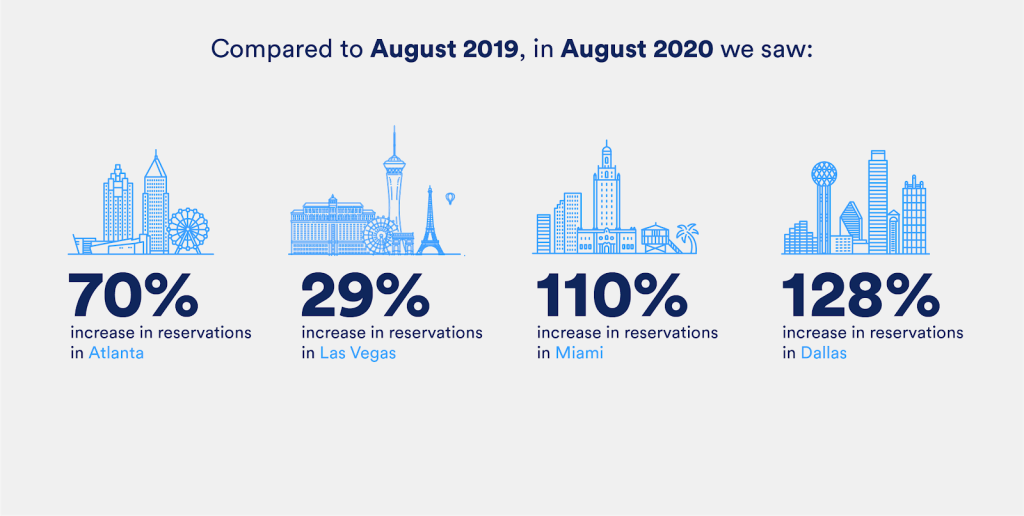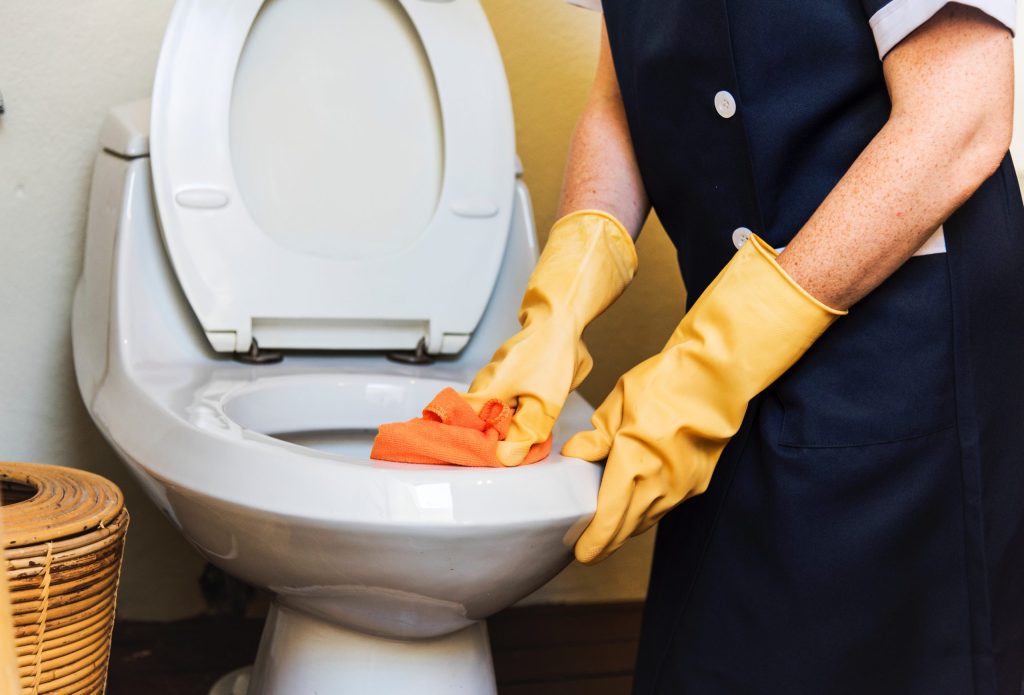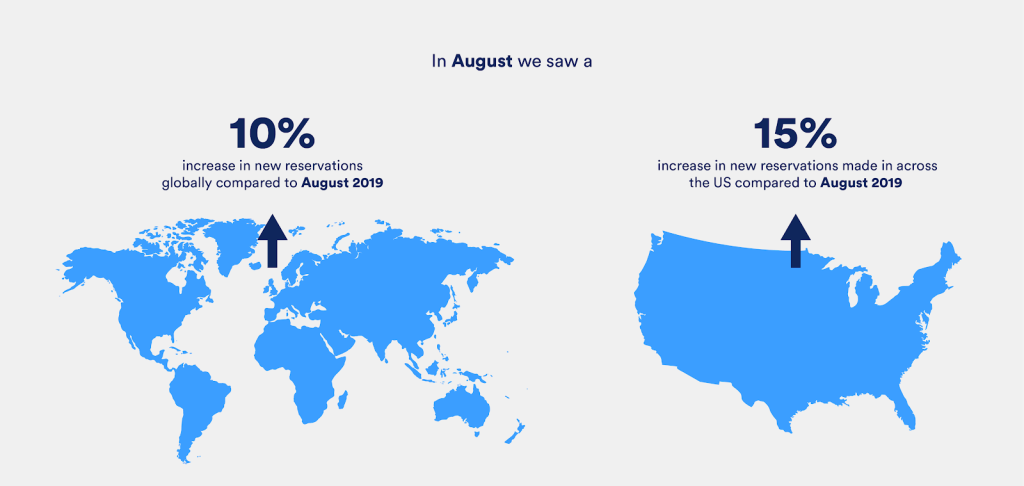This is a guest post by Alon Eitan, Director of Strategy and Business Development, at short-term property management platform Guesty
With travel starting to resume in parts of the world, coupled with domestic vacations on the rise, we’re seeing some promising numbers in regards to reservation volume along with new booking patterns.
After analysing Guesty’s own internal data across all major booking platforms, including Airbnb, Booking.com and Vrbo, we’re sharing the latest global travel trends along with our predictions for the future of the short-term rental ecosystem.
Domestic staycations will still be the most popular form of travel – for now, at least
COVID-19 has resulted in travellers seeking out stays in suburban and rural locations, a trend we will likely see even after COVID-19 is a thing of the past.
With more space and proximity to the beach or to nature, rentals within these ‘drive to’ destinations about 1-4 hours away from cities are being sought after by those who prefer to avoid crowds.
That said, some are also booking in major metropolitan cities. Take the US for example – due to pent up demand for travel, lifting restrictions in various areas and lower average nightly rates, travellers are booking in urban areas for the first time since March.
Cities with warmer weather – specifically those near national parks and theme parks – appear to be the top choices. When comparing August 2020 with August 2019, Dallas has seen a 128% increase in reservations and Miami has seen an 110% increase.

Planning is out, spontaneity is in
Travelers are continuing to make reservations closer to check-in due to the uncertainty of travel in general.
Those looking to take a spontaneous getaway can now plan trips last-minute thanks to hosts implementing flexible cancellation policies that offer, for example, a 100% refund even up to a couple of days prior to the booking start date.
In fact, our data shows the majority of bookings in August alone were made up to 7 days in advance of the booking itself.
In that same month, there was also a 3% uptick in reservations made within 1 day of the booking itself and a 5% uptick in same-day reservations.
We expect a busy holiday travel season
Though we currently see a decrease in reservations for holiday bookings this year, this number will likely increase as we get closer to the holidays considering the ongoing trend of last-minute bookings.
Compared to the same time last year, in the US we currently see:

Hosts that boast stricter cleaning protocols will outperform competitors
Travelers right now are much more concerned, and rightfully so, about the cleanliness of their accommodations and are frequently inquiring about the steps that have been taken to keep them safe.
To remain competitive, property management companies will need to promote their stringent cleaning procedures, such as holding 24-72 hour periods of vacancy in between stays, getting rid of mid-stay cleanings to avoid contact with guests and staff, following CDC/WHO approved guidelines, implementing contact-free technology and more.
Hosts worldwide have caught on to the fact that guests are taking safety and cleanliness very seriously, best highlighted by the study Guesty conducted on COVID-19’s impact on the short-term rental industry:
60% of respondents (property management companies worldwide with 3 – 200+ properties in their portfolios) reported following more stringent cleaning protocols in light of COVID-19.
Hand in hand with cleanliness, guests will increasingly expect more contact-free stays that limit human interaction between them and their rental hosts.
As such, COVID-19 has sped up the adoption of tech tools that facilitate this guest expectation such as keyless entry solutions and self-check-in/out protocols.

More guests will consider short-term rentals over traditional hotel stays
We’ll see guests largely opting for private rentals over traditional hotel stays when it comes to booking future travel.
In doing so, they don’t have to worry about condensed common areas that typically accompany hotel stays, and in a private short-term rental, they can minimize face-to-face interaction and limit exposure with others.
Short-term rental properties also have lower guest turnover, which already reduces the risk of exposure significantly; and, by nature, private homes have less “high-touch” surfaces in shared spaces, such as elevator buttons or door handles, than crowded hotels.
We’re already seeing more and more guests hop on the short-term rental wagon.
In fact, Airbnb reported over 1M nights booked in one day in July (for the first time since March) and in the words of Booking.com’s CEO: “in Q2 [2020], Booking.com alternative accommodations represented about 40% of all new bookings in the quarter.”
Preparing For the Return Of Travel
Although travel might look different in the future, our data points to a promising future for the short-term rental industry.
For example: in August of this year we saw a 10% increase in new reservations globally compared to August 2019, and a 15% increase in the US specifically.
In general, month over month we see an uptick in reservation volume.

With the pent-up demand for travel, restrictions gradually lifting in various areas worldwide and the ability to work remotely becoming increasingly popular, our industry is poised for growth once COVID-19 is a distant memory.
For more information on adapting to the new normal as travel picks back up again, visit Guesty’s Coronavirus Infocenter.
